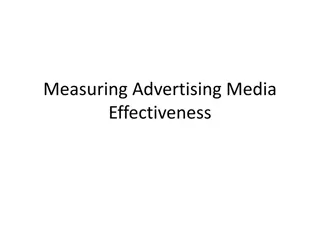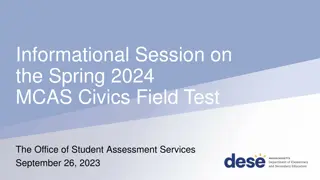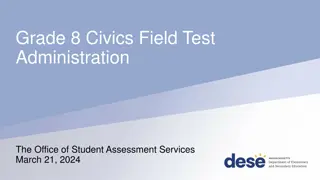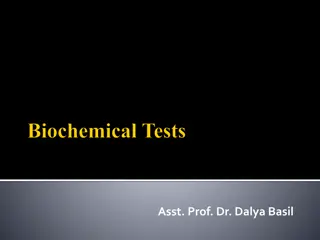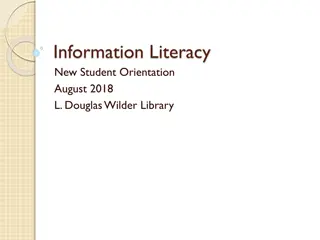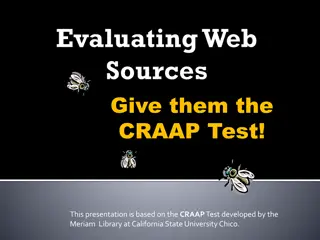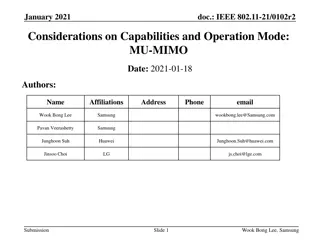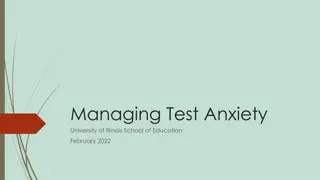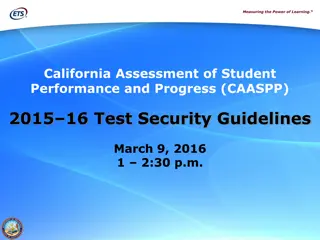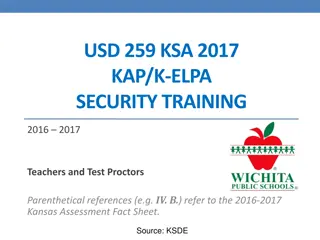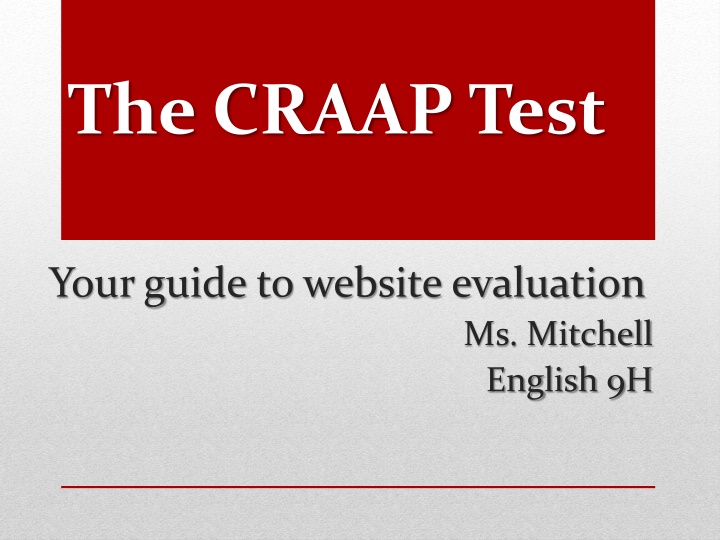
Guide to Evaluating Website Credibility with the CRAAP Test
Learn how to evaluate web sources using the CRAAP Test to determine the credibility of information online. Understand the importance of assessing currency, relevance, authority, accuracy, and purpose to ensure the reliability of web content.
Download Presentation

Please find below an Image/Link to download the presentation.
The content on the website is provided AS IS for your information and personal use only. It may not be sold, licensed, or shared on other websites without obtaining consent from the author. If you encounter any issues during the download, it is possible that the publisher has removed the file from their server.
You are allowed to download the files provided on this website for personal or commercial use, subject to the condition that they are used lawfully. All files are the property of their respective owners.
The content on the website is provided AS IS for your information and personal use only. It may not be sold, licensed, or shared on other websites without obtaining consent from the author.
E N D
Presentation Transcript
The CRAAP Test Your guide to website evaluation Ms. Mitchell English 9H
Why Evaluate Web Sources? Anyone with a little time, some knowledge and small amount of money can publish on the Internet. There is little control over much of what is posted, so that virtually anyone can create a web site on any topic. No person, persons or organization reviews the content of the Internet. Pages are retrieved by search engines based on the page's content, not the relevancy or quality of the page. Much information on the Web is not updated regularly.
When you search the Web for information, you're going to find lots of it. . . Almost too much. Is the information accurate and reliable? You will have to determine this for yourself, and the CRAAP Test can help. Surfing The Web
The CRAAP Test is a list of questions to determine if the information you have is reliable. It is not static or complete. Different criteria will be more or less important depending on your situation or need.
So, what are you waiting for? Is your web site credible and useful, or is it a bunch of . . .?!
When was the info published or posted? Has it been revised or updated? Is the info current or out-of-date? Are the links functional? http://www.breastcancer.org/ CURRENCY
Does the info relate to your topic or answer your research question? Who is the intended audience? Is the info at the appropriate level? Have you looked at a variety of sources? Google search: homeschooling RELEVANCE
What audience might find this web site relevant? http://www.mayoclinic.com/health/autism/DS00348/ Relevance
Who is the author/publisher/sponsor? Are the author s credentials or organizational affiliations given? Is there contact info for the author/organization? What is the domain of the site?Good site examples: .com .edu .gov .org .net http://www.martinlutherking.org/ AUTHORITY
Where does the info come from? Is the info supported by evidence? Has the info been reviewed or refereed? Can you verify the info in another source? Does the language seem biased or free from emotion? http://www.justfacts.com/guncontrol.asp ACCURACY
Is information supported by evidence? Accuracy
Does the info attempt to inform? Teach? Sell? Entertain? Persuade? Does the author make his intentions or purpose clear? Is the info fact? Opinion? Propaganda? Does the point of view appear objective and impartial? http://www.peta.org/ PURPOSE
Gut Test When considering if your website is a good source don t forget the simple Gut Test your first impression after skimming a site s homepage or content . Think about whether you are the victim of spoof, fraud, or other falsehood. If on your first viewing a site seems biased or advocating a particular agenda factually wrong or treating opinion as fact Full of spelling or grammatical errors kooky, warped, crazy, sick, depraved, or just plain old wrong then it is probably not a reliable source of research information.
Ask yourself if the web is truly the best place to find the resources you need for your research. The very best resource is a human resource Ask a reference librarian! Think like a detective have fun! Remember .
What did you learn that built upon what you already know about evaluating sources? How might you use some of these strategies to ensure that in the future, you evaluate sources effectively? What did you learn?

